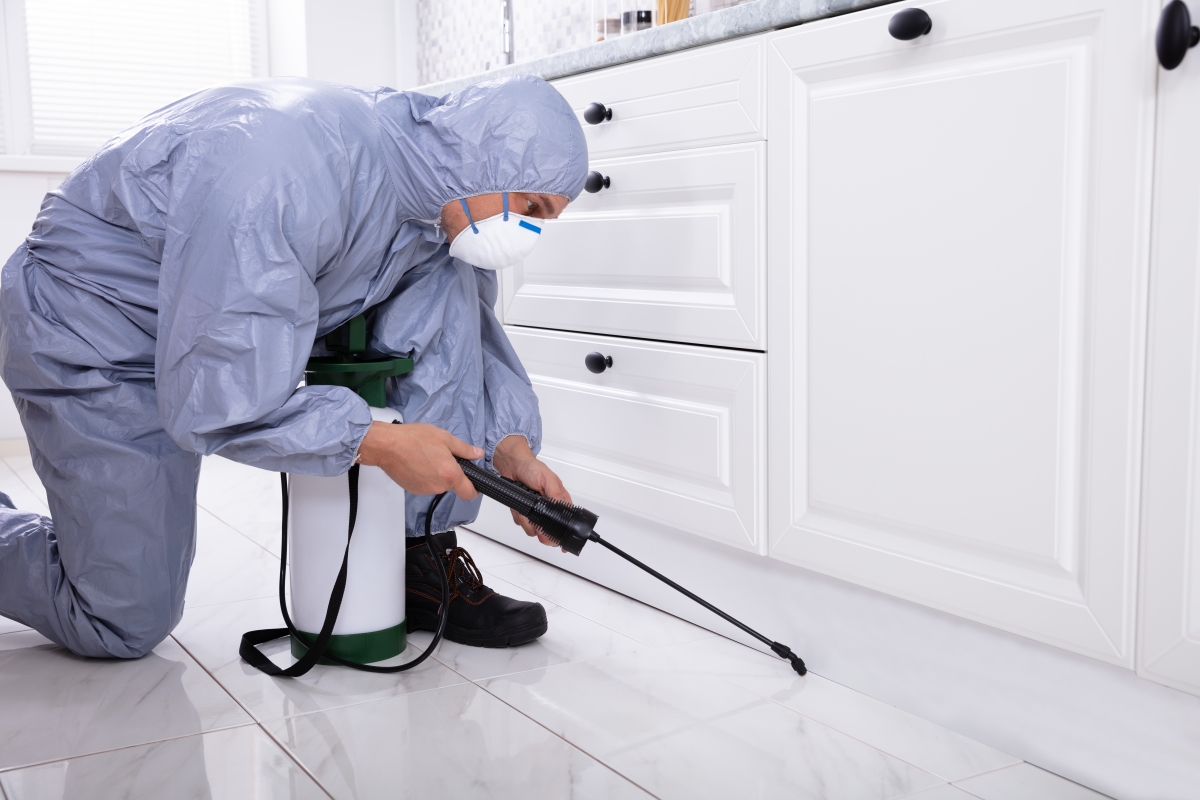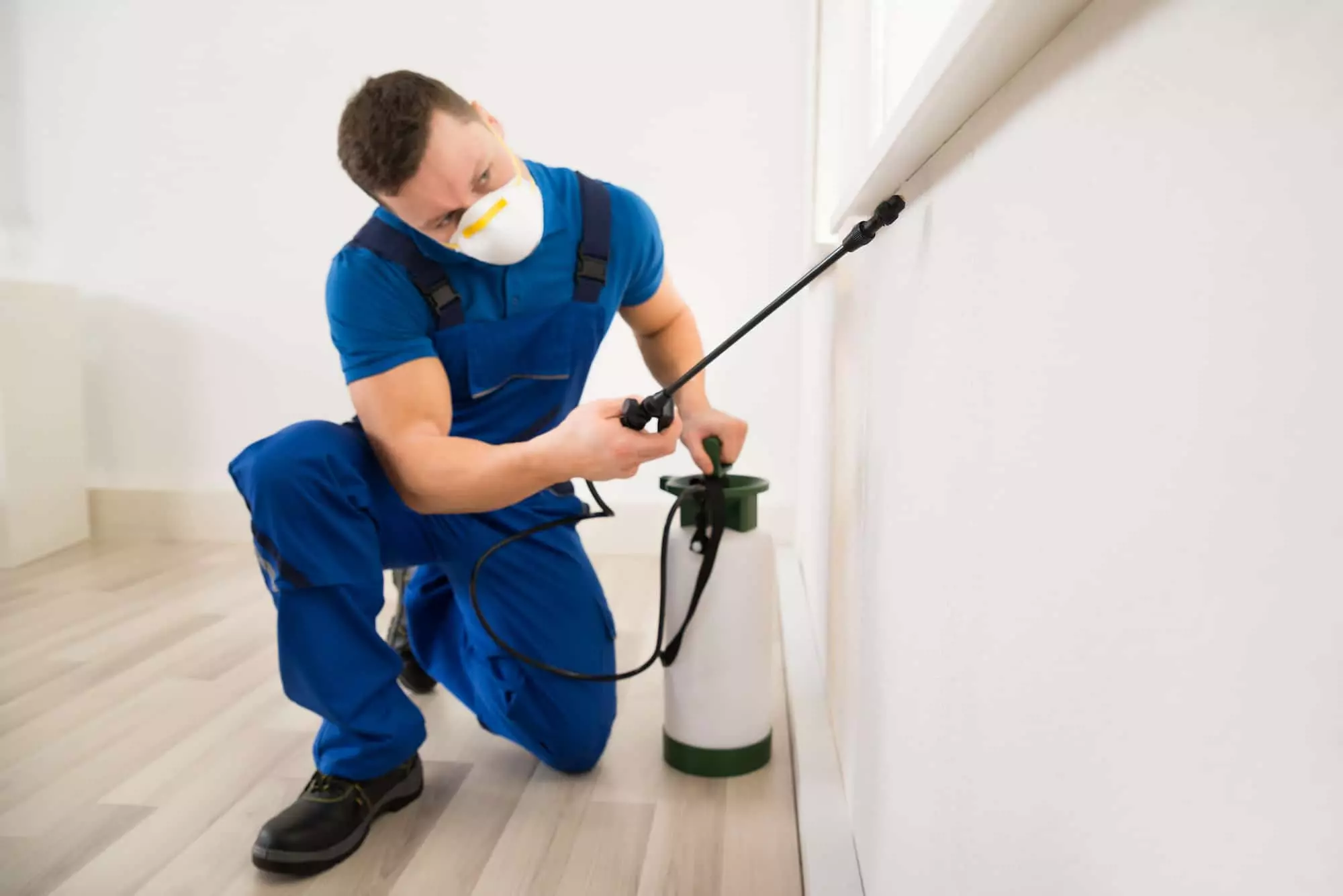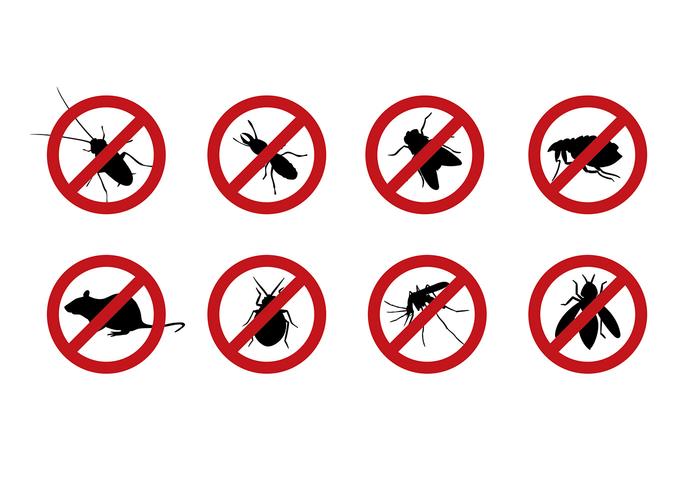Safe and Trusted Parasite Control for Lasting Protection
Reliable insect management needs a complex method that balances ecological honesty with the demand for effective parasite reductions. The subtleties of these techniques might not be immediately clear, triggering a closer assessment of the methods that can lead to sustainable pest control outcomes.
Comprehending Parasite Control Methods
Parasite control incorporates a selection of methods targeted at managing and eradicating unwanted pests and rodents that can threaten both wellness and residential property. Comprehending these techniques is crucial for efficient insect management.
The key groups of parasite control techniques include mechanical, organic, and chemical strategies. Mechanical approaches involve physical obstacles and traps to prevent insect access and capture undesirable species. Using screens on windows or utilizing sticky traps can significantly reduce pest populations without introducing damaging compounds - exterminator coquitlam.

Chemical pest control is frequently one of the most recognized method, utilizing pesticides to remove insects. These chemicals can be efficient yet should be used with caution to prevent negative results on non-target types and the setting.
Advantages of Eco-Friendly Solutions
Just how can environment-friendly options transform insect control techniques? The fostering of environment-friendly pest control approaches offers countless advantages, substantially boosting the effectiveness and safety of pest management (exterminator coquitlam). These options make use of all-natural ingredients, decreasing the reliance on hazardous chemicals that can pose threats to human wellness and the atmosphere. This change not just shields family pets and households but likewise decreases the capacity for dirt and water contamination.

An additional benefit is the positive effect on regional biodiversity. Environmentally friendly services are designed to target details bugs while protecting beneficial bugs and wild animals, promoting a well balanced ecosystem. This technique straightens with the growing consumer demand for lasting methods, improving the online reputation of pest control service providers.
Integrated Bug Management Methods
The application of eco-friendly solutions naturally causes the fostering of Integrated Insect Administration (IPM) techniques, which better improve pest control effectiveness. IPM is an alternative method that combines several techniques to manage parasite populaces while decreasing ecological influence. This technique stresses using biological, cultural, mechanical, and chemical controls, making certain a lasting and balanced technique of parasite administration.
One fundamental element of IPM is the detailed analysis of parasite task and environmental conditions. By checking pest populaces and determining their life cycles, professionals can execute targeted interventions that interfere with the bug's environment or lifecycle, reducing dependence on chemical pesticides. Additionally, social techniques such as crop turning and habitat control can substantially reduce parasite establishment and recreation.
One more critical element is the use of biological control representatives, such as advantageous insects or microbes, which can normally subdue insect populaces. When chemical applications are necessary, IPM prioritizes using low-risk chemicals and uses them selectively, reducing direct exposure to non-target organisms and humans.
Including IPM techniques not only enhances pest control effectiveness yet additionally promotes a much safer environment, aligning with the expanding demand for sustainable techniques in insect management.
Safe Practices for Property Owners
Understanding the value of safe techniques in parasite control can encourage house owners to successfully manage bug issues while guarding their wellness and the setting. Carrying out non-toxic techniques and preventive measures is crucial in lessening exposure to damaging chemicals.
House owners ought to initially evaluate their environment for conditions that draw in insects, such as standing food, water, and mess waste. On a regular basis cleaning and securing entrance points can hinder bugs from attacking the home. Utilizing natural deterrents, such as important oils or diatomaceous planet, can offer reliable choices to chemical pesticides.
When chemical treatments are needed, home owners need to choose items that are specifically identified as risk-free for residential use. It is important to comply with application standards carefully to stay clear of overexposure. Making use of targeted therapies in locations where pests are recognized, rather than blanket spraying, can substantially reduce chemical usage.
Lastly, keeping open communication with parasite control experts is crucial. Home owners must ask about the safety and security of products made use of and demand green alternatives whenever possible. By embracing these secure techniques, home owners can produce a healthier living environment while effectively handling parasite concerns.

Tips for Long-Term Security
Developing a parasite administration method that emphasizes long-term protection can substantially enhance the performance of the safe techniques formerly reviewed. To achieve this, house owners ought to carry out routine evaluations of their home, concentrating on hidden areas such as attic rooms, cellars, and crawl spaces. Early discovery of bug task is vital in protecting against problems from holding.
These methods minimize attractants that attract parasites into the home. Sealing entrance points, such as fractures around doors and visit the website home windows, can effectively obstruct potential bug accessibility.
Landscape design should likewise be thought about; maintaining plants cut and keeping a distance in between plants and the home decreases hiding areas for parasites. Making use of all-natural deterrents, such as vital oils or diatomaceous planet, can further inhibit problems without turning to extreme chemicals.
Lastly, working together with a specialist parasite read the full info here control service for periodic examinations can give an extra layer of security. These specialists can offer customized recommendations and progressed therapies, making sure that your home remains safeguarded against pests in the long term.
Final Thought
To conclude, reputable and safe insect control needs a multifaceted technique that emphasizes environment-friendly techniques and integrated parasite monitoring. By executing natural deterrents, performing routine evaluations, and keeping appropriate sanitation, homeowner can substantially reduce bug populations while shielding advantageous insects and the atmosphere. Cooperation with specialist insect control services boosts the effectiveness of these techniques, ensuring customized solutions that supply long lasting protection and satisfaction against future problems.
Effective insect administration needs a complex method that balances ecological honesty with the need for effective pest suppression. The fostering of green parasite control approaches provides many advantages, dramatically enhancing the efficiency and security of parasite administration.The execution of environment-friendly remedies naturally leads to the pop over to this web-site fostering of Integrated Insect Administration (IPM) techniques, which better improve bug control effectiveness. exterminator coquitlam. By monitoring parasite populations and determining their life cycles, practitioners can carry out targeted treatments that interrupt the insect's environment or lifecycle, reducing dependence on chemical pesticides.In final thought, safe and reputable insect control calls for a complex approach that emphasizes environmentally friendly techniques and integrated pest administration